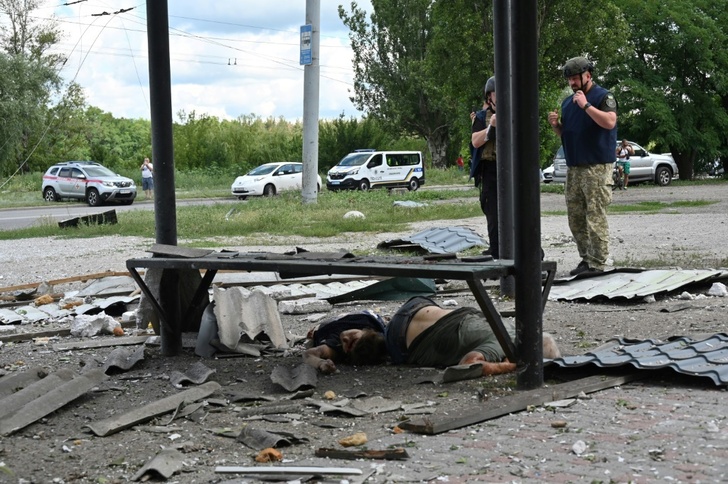Here are the latest developments in the war in Ukraine:
- EU prepares for Russian gas cut-off -
The European Commission urges EU members to reduce demand for natural gas by 15 percent over the coming months and to give it the powers to impose gas rationing in preparation for a winter without Russian gas, or with a much-reduced supply.
"Russia is using energy as a weapon and therefore, in any event, whether it's a partial major cut off of Russian gas or total cut off... Europe needs to be ready," European Commission president Ursula von der Leyen says.
In a draft plan seen by AFP the Commission asks member states to turn down the heating and air-conditioning in public and commercial buildings.
Since Russia invaded Ukraine on February 24 and the West responded with sanctions, Russia has begun reducing its gas deliveries to EU members, including Germany, and in the case of Bulgaria, Denmark, Finland, The Netherlands and Poland, halting them altogether.
Europe is eagerly watching whether Russia will resume gas supplies via the Nord Stream 1 pipeline on Thursday when scheduled maintenance is due to be completed. German pipeline manager Gascade said it expected Russian gas deliveries to resume at 40 percent of capacity.
On Wednesday evening, the president of Germany's Federal Network Agency Klaus Mueller estimated on Twitter that the delivery on Thursday might only be "around 30 percent" of the capacity, after updating the data.
- Russia's aims go beyond Donbas: Lavrov -
Russian Foreign Minister Sergei Lavrov says President Vladimir Putin's designs on Ukraine go beyond the eastern Donbas region, which Moscow made its focus after failing to take the capital Kyiv and second city of Kharkiv.
In an interview with Russian state media he says "it is not only about the DNR and LNR", referring to the two territories that make up the Donbas, but also about the Russian-occupied southern Kherson region, the partly-occupied southeastern Zaporizhzhia region "and a number of other territories".
He says Western arms shipments to Kyiv, including the supply of medium-range US multiple rocket launchers, had made Moscow review its aims.
"By confessing dreams to grab more Ukrainian land, (the) Russian Foreign Minister proves that Russia rejects diplomacy and focuses on war and terror," Ukraine's Foreign Minister Dmytro Kuleba says on social media, calling "on all partners to step up sanctions pressure on Russia and speed up arms deliveries to Ukraine."
- Three killed in Kharkiv -
While Russian forces advance in Donbas they have also continued bombarding Kharkiv, where three people were killed by shelling on Wednesday.
Regional governor Oleg Synegubov says the dead included a 13-year-old boy. AFP journalists see a man in shock kneeling over the body of a boy in a blue sweatshirt.
Elsewhere, two people were killed in artillery strikes on the southern city of Nikopol, near Zaporizhzhia.
- 'No sense' in peace talks: Lavrov -
In the same interview Lavrov also declares that peace talks with Ukraine make no sense "in the current situation".
He accuses Kyiv of having "no desire to discuss anything in earnest."
The two sides made some headway during talks in the first month of the conflict but they stalled after the discovery of the bodies of hundreds of civilians massacred in areas that had been occupied by Russian forces.
- EU adopts Russian gold embargo -
EU countries target Russian gold exports and freeze assets at Russia's largest bank Sberbank in a new round of sanctions imposed to punish Moscow for its invasion of Ukraine.
The embargo on gold imports fulfils a decision agreed by the world's most industrialised nations at a G7 meeting in late June in which EU members Germany, France and Italy took part.
The EU also unblocks assets at Russian banks linked to trade in food and fertiliser in an effort to respond to Moscow's allegations that the sanctions are causing a food crisis.
burs-cb-jmy/lcm
© Agence France-Presse
Your content is great. However, if any of the content contained herein violates any rights of yours, including those of copyright, please contact us immediately by e-mail at media[@]kissrpr.com.
Source: Story.KISSPR.com

